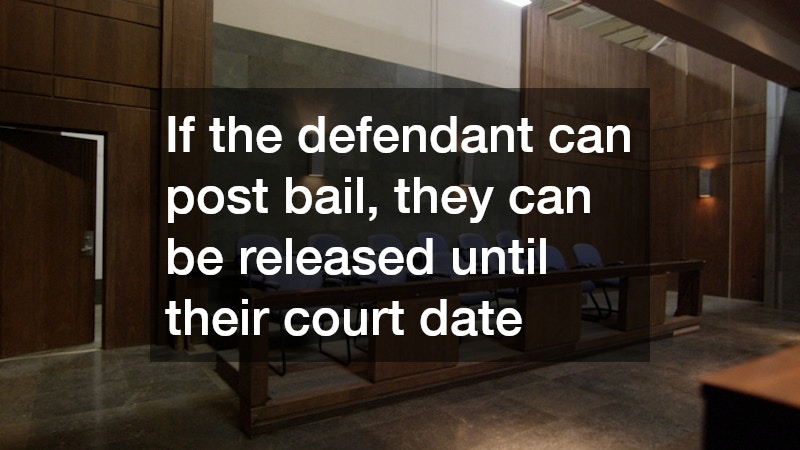Learn the answers to common legal questions associated with bail bondsman services. Understanding how bail works, what to expect when working with a bail bondsman, and clarifying any misconceptions you may have is the key to success.
What Is a Bail Bondsman and What Do They Do?
A bail bondsman is an individual or company that provides a financial service to help secure the release of someone who has been arrested and needs to pay bail. When a person is arrested, bail is set by the court to ensure that the individual returns for their court hearings.
Bail bondsmen come into play when individuals, often unable to pay the total bail amount, seek assistance in securing their release.
The primary role of a bail bondsman is to provide a type of loan for the bail amount, usually for a fee that is a percentage of the total bail. In exchange for this service, the bail bondsman assumes the financial responsibility of ensuring that the defendant appears in court. If the defendant skips bail, the bondsman may lose the money and can take legal steps to capture the individual who missed their court date.
When hiring a bail bondsman, it’s essential to understand the agreements involved fully. They often require collateral, which can be in the form of property, cash, or other assets. This collateral secures the bond and guarantees the bond’s terms are met—maintaining transparency in the process is crucial for both parties involved.
How Does the Bail Process Work?
The bail process begins shortly after arrest, during which the defendant is booked and processed by law enforcement. Once arrested, a judge sets the bail amount during an arraignment, taking into account factors such as the severity of the crime, the defendant’s criminal history, and the risk of flight. Understanding how bail amounts are determined is vital for anyone seeking to navigate this process.
If the defendant can post bail, they can be released until their court date. However, many are unable to afford the entire bail amount. This is where bail bondsman services become beneficial. By paying a non-refundable fee, a bondsman can post the bail on behalf of the defendant, allowing them to return home while awaiting trial.
After securing a bond, the bondsman has the responsibility to ensure the defendant complies with all court appearances. If the individual fails to show up, the bondsman may hire bounty hunters to locate and return the defendant to custody. Throughout this process, communication with the bondsman and adherence to agreed-upon terms are essential to avoid any complications.
What Happens if You Can’t Afford Bail?
If an individual cannot afford the full bail amount, they can seek the assistance of a bail bondsman who can offer a loan for the bail cost. This enables the defendant to secure their release while awaiting trial without needing to pay the full amount upfront. Understanding this aspect of bail can relieve financial stress and enable individuals to navigate their legal situations more effectively.
In circumstances where using a bail bondsman is not feasible, defendants may explore various alternatives. This can include working with an attorney to request a bail reduction hearing or seeking a personal recognizance (PR) bail, which allows a defendant to be released without financial conditions. This option may require a demonstration of strong ties to the community and low flight risk.
Moreover, it’s important to realize that using a bail bond service comes with certain advantages. Not only does it provide the necessary funds to secure release, but bail bondsmen often have extensive knowledge of the local legal system, which can prove invaluable during the court process. Their experience can guide defendants and their families through the complexities of the law.
What Should You Look for When Choosing a Bail Bondsman?
Choosing a reputable bail bondsman is crucial to ensure the process goes smoothly. One of the first factors to consider is licensing; a legitimate bail bondsman should be licensed in the state where the services are provided. This offers some assurance of their credibility and adherence to local laws and regulations governing bail.
Another important aspect to evaluate is the fees charged. While it is common for bail bondsmen to charge a percentage of the total bail—typically between 10-15%—it’s essential to clarify any additional costs upfront. Transparency in the fee structure will help avoid any surprise charges that could complicate the financial aspect of securing a bond.
Assessing customer service can also make a significant difference. Reading reviews or seeking referrals from other clients can provide insight into the bondsman’s reliability and level of support. A knowledgeable and responsive bail bondsman will guide you through the process, ensuring you feel informed and comfortable with the arrangements you enter.
Understanding the ins and outs of bail bondsman services can alleviate much of the stress associated with the legal process. By addressing these common questions, we hope to empower you with the knowledge needed to make informed decisions. Always consult with legal professionals if you have any further questions.




